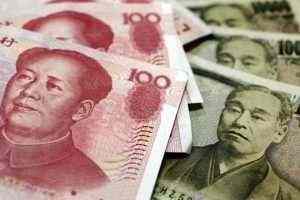

In contrast to that, real estate isn’t a liquid market because of the limited buyers in the market. Although, in some regions of the world, the number of sellers in this market are found in abundance. Not to mention, the transaction process in real estate is complex too as it requires the processing of multiple documentation and banking activities. It is a platform where all the trades are executed with ease and at a low cost.
This old building for sale in Cheshire, England, has relatively low liquidity. It could be sold in a matter of days at a low price, but it could take several years to find a buyer who is willing to pay a reasonable price. With more people and merchants accepting cryptocurrencies as a payment medium, it is becoming more liquid. Proprietary trading refers to a financial firm or bank that invests for direct market gain rather than earning commissions and fees by trading on the behalf of clients. Learning skills like financial modeling, stock investing, and data analysis can help pave the way to a career in finance or FinTech .
Effect on asset values
Overall, The main advantage of a liquid market is that investments can be easily transferred into cash at a good rate and in a timely fashion. The essential characteristic of a liquid market is that there are always ready and willing buyers and sellers. The online auction site has a near-monopoly because buyers and sellers naturally gravitate to the largest, most liquid market. Liquid markets have many available buyers and sellers where prices change in comparatively small increments. Our sophisticated and continually developing proprietary technology is developed in conjunction with our traders.
The investment portfolio represents a smaller portion of assets, and serves as the primary source of liquidity. Investment securities can be liquidated to satisfy deposit withdrawals and increased loan demand. In a worst-case scenario, depositors may demand their funds when the bank is unable to generate adequate cash without incurring substantial financial losses.
The details of what makes a market liquid may vary depending on the asset being exchanged. In a liquid market, it is easy to execute a trade quickly and at a desirable price because there are numerous buyers and sellers and the product being exchanged is standardized and in high demand. In a liquid market despite daily changes in supply and demand the spread between what the buyer wants to pay and what sellers will offer remains relatively small. In banking, liquidity is the ability to meet obligations when they come due without incurring unacceptable losses.

This means we are typically trading in larger volumes than competing liquidity providers and getting foresight as to what is happening in the markets. Armed with this information, the future becomes more manageable, the cost of risk transfer is reduced and better pricing ensues. In short, by offering keener prices, we assist in shaping an otherwise unpredictable future. Liquid Capital Markets began its life in 2000 making markets in exchange-traded options from its offices in London.
When an asset can be sold quickly and without losing value, it usually is considered to possess a high level of liquidity. As a general rule, the more easily an asset can be converted to cash, the more liquid the asset is. Stocks, money market securities, government bonds, and blue chips are also usually considered liquid assets.
What Is a Liquid Market?
An alternative investment is a financial asset that does not fall into one of the conventional investment categories. Inflation is a decrease in the purchasing power of money, reflected in a general increase in the prices of goods and services in an economy. NFT royalties are a way for creators to earn a percentage of the sale value each time their NFT is sold on …

Annual percentage yield is the rate of return gained over the course of a year on a specific investme… Liquid Capital Markets has achieved and maintains its global standing as a result of its focus on its two most important assets. Get ready with Test&Train , the online practice tool from Cambridge. Build your confidence with hundreds of exam questions with hints, tips and instant feedback.
How to Learn Finance
Therefore, for a healthy trading environment, it is quite necessary for traders to go for an asset with a high level of liquidity. An illiquid asset is an asset which is not readily salable due to uncertainty about its value or the lack of a market in which it is regularly traded. The mortgage-related assets which resulted in the subprime mortgage crisis are examples of illiquid assets, as their value was not readily determinable despite being secured by real property.
Whether it be correlation or causation, a market that has less liquidity is likely to become more volatile. With less interest, any shift in prices is exasperated as participants have to cross wider spreads, which in turn shifts prices further. Good examples are lightly traded commodity markets such as grains, corn, and wheat futures.
Liquid market definition
The market for the stock of a Fortune 500 company would be considered a liquid market, but the market for a family-owned restaurant would not. The largest and most liquid market in the world is the forex market, where foreign currencies are traded. It is estimated that the daily trading volume in the currency market is over $5 trillion, which is dominated by the U.S. dollar.
Real estate investments are often considered illiquid assets because they cannot be easily bought or sold. A large block of stock is another example of an illiquid asset, because its market value would most likely be impacted if it were sold. In a liquid market, assets can be easily converted without considerable price fluctuation, and with a minimal decline in worth. A liquid market is a type of market that possesses a high level of stability, and low spreads between asking and selling prices. A high trading volume exists in a liquid market, because large numbers of buyers and sellers are ready and willing to trade at any time during market hours. A liquid market a one with many available buyers and sellers and comparatively low transaction costs.
Managing liquidity is a daily process requiring bankers to monitor and project cash flows to ensure adequate liquidity is maintained. Maintaining a balance between short-term assets and short-term liabilities is critical. For an individual bank, clients’ deposits are its primary liabilities , whereas reserves and loans are its primary assets .
Understanding Liquid Markets
Before the crisis, they had moderate liquidity because it was believed that their value was generally known. Liquid markets make it quick and efficient for buyers and sellers to trade in and out of securities with tight spreads and low transaction costs. Otherwise, large trades can cause huge swings in prices, which in turn, increase volatility and risks in the market. It also allows both buyers and sellers to close the trade quickly, leading to a tighter bid-ask spread. A liquid market is any market with a high volume of activity, allowing traders ample opportunity to buy or sell large quantities at any time and for low transaction costs. In the crypto market, the liquidity of a coin/token is defined as the ability of the crypto asset to be easily converted into cash or other cryptocurrencies.
Specialising at that time solely in index products, we have grown to become a globally recognised liquidity provider of fixed income, index, equity and commodity options. With additional offices now in Sydney and Hong Kong, Liquid Capital Markets trades thousands of option contracts on all major global exchanges daily. In the futures markets, there is no assurance that a liquid market may exist for offsetting a commodity contract at all times. Some future contracts and specific delivery months tend to have increasingly more trading activity and have higher liquidity than others. The most useful indicators of liquidity for these contracts are the trading volume and open interest. One of the factors that affect the crypto market’s liquidity is the trading volume.
The liquidity discount is the reduced promised yield or expected return for such assets, like the difference between newly issued U.S. Treasury bonds compared to off the run treasuries with the same term to maturity. Initial buyers know that other investors are less willing to buy off-the-run treasuries, so the newly issued bonds have a higher price . When a market is liquid enough, it creates an equilibrium market price that is accepted by all. In such a market, it is quite difficult to manipulate the price due to the equality between buyers and sellers.
Liquid markets are usually found in financial assets such as forex, futures, bonds, and stocks. Markets for high-priced tangible goods, such as luxury items, heavy industrial equipment, or houses are considered illiquid markets. An asset may be characterized as illiquid if it cannot be converted easily, if it possesses uncertainty in value, or if it lacks a regular exchange market. An illiquid asset is usually more difficult to trade than a liquid asset.